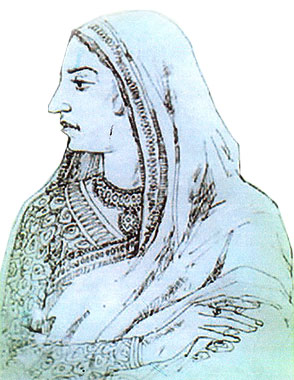|
Mahmudunnabi Chowdhury
Mahmudunnabi Chowdhury (; 7 January 1908 – 6 August 1995) was a Bangladeshi politician, businessman and former minister. He was one of the founders of the Chittagong Chamber of Commerce. Chowdhury contested as a United Front candidate for the Double Mooring-Sitakunda constituency at the 1954 East Bengal Legislative Assembly election. After being elected as a member, he served as the Minister for Mass Communication, and then as the Minister for Relief and Rehabilitation. Early life and education Chowdhury was born on 7 January 1908 to a Bengali family of Muslim Chowdhuries in the Nazir Bari of North Kattali, Pahartali in the Chittagong District of the Bengal Presidency. He was the son of Khadem Ali Chowdhury and Begum Alfunnesa. Chowdhury completed his matriculation from the Government Muslim High School in 1930. He passed his ISC from Chittagong College in 1932, and received his Bachelor of Science degree from the same college in 1934. Career Chowdhury began his career i ... [...More Info...] [...Related Items...] OR: [Wikipedia] [Google] [Baidu] |
East Pakistan Legislative Assembly
The East Pakistan Provincial Assembly, known as the East Bengal Legislative Assembly between 1947 and 1955, was the provincial legislature of East Pakistan between 1947 and 1971. It was known as the East Bengal Assembly from 1947 to 1955 when the provincial name was changed. The legislature was a successor to the Bengal Legislative Council and the Bengal Legislative Assembly, which were divided between East Bengal and West Bengal during the partition of Bengal in 1947. It was the largest provincial legislature in Pakistan. Elections were held only twice in 1954 and 1970. During the Bangladesh War of Independence in 1971, most Bengali members elected to the Pakistani National Assembly and the East Pakistani provincial assembly became members of the Constituent Assembly of Bangladesh. History Partition of Bengal On 20 June 1947, 141 East Bengali legislators from the Bengal Legislative Assembly voted on the partition of Bengal, with 107 supporting joining Pakistan's Constituent ... [...More Info...] [...Related Items...] OR: [Wikipedia] [Google] [Baidu] |
Chowdhury
Chowdhury (also: Choudhuri, Chaudhuri, Choudhury, Chaudhri, Chaudhary) is a title of honour, usually hereditary, originating from the Indian subcontinent. It is an adaption from Sanskrit. During the Mughal rule, it was a title awarded to eminent people, while during British rule, the term was associated with zamindars and social leaders. The common female equivalent was Chowdhurani. Meaning "Chowdhury" is a term adapted from the Sanskrit words ''čatus'' "four-way, all-round" and ''dhurīya'' "undertaking a burden", denoting the head of a community or caste. Significance It was a title awarded to persons of eminence, including both Muslims and Hindus, during the Mughal Empire. It was also used as a title by military commanders responsible for four separate forces, including the cavalry, navy, infantry and elephant corps. These people belonged to the zamindar families in British India. Later, the Mughal Empire, Mughals and the Nawabs conferred the same title in great numbers. ... [...More Info...] [...Related Items...] OR: [Wikipedia] [Google] [Baidu] |
1969 East Pakistan Mass Uprising
The 1969 East Pakistan mass uprising () was a democratic political uprising in East Pakistan. It was led by the students backed by various political parties such as the Awami League, National Awami Party, and Communist party of East Pakistan and their student wings, and the cultural fronts (writers, poets, musicians, singers, actors, etc) against Muhammad Ayub Khan, the president of Pakistan in protest of the oppressive military rule, political repressions, ''Agartala Conspiracy Case'' and the incarceration of Bangabandhu Sheikh Mujibur Rahman and other Bengali nationalists''.'' The uprising consisted of mass demonstrations and sporadic conflicts between government armed forces and the demonstrators. Although the unrest began in 1966 with the six point movement of Awami League, it got momentum at the beginning of 1969. It culminated in the resignation of Ayub Khan. The uprising also led to the withdrawal of the Agartala Conspiracy Case and acquittal of Sheikh Mujibur Rahman and ... [...More Info...] [...Related Items...] OR: [Wikipedia] [Google] [Baidu] |


